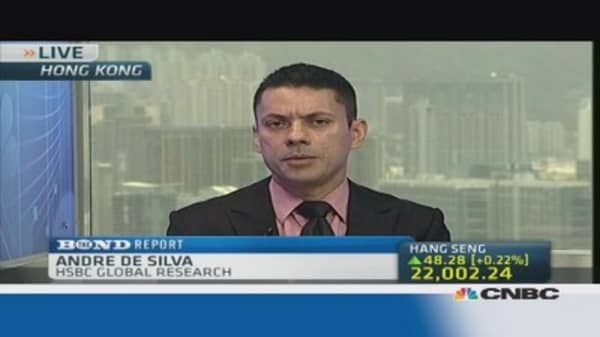Once the darling of financial markets, the tables appear to have "flipped" for BRIC nations, analysts say, with one market watcher predicting a recession for the economies once famous for their fast growth.
Emerging countries such as Brazil, Russia, India and China, often referred to as the BRICS, have dominated stock markets with stellar gains in the past decade, but their performance year-to-date has been miserable.
Instead, it's the developed equity markets that have taken the spotlight this year, with many raking in double-digit gains.
(Read more: 'Rally has gone too far,' Citi strategist says)
"I think we've had a really strong bull market in emerging markets for many years. That era has ended and now, we're going to get a very long bull market in European and American stocks," said Clem Chambers, CEO of financial services website ADVFN.
"The BRIC story is over and the BRICS will go into recession. Like all things, there's always a party going on somewhere and the party's going to be in America and as an off-set, in Europe."
So far this year, both the Dow Jones Industrial Average and S&P 500 index have notched up gains of over 18 percent. In Europe, London's FTSE 100 index has rallied 11 percent and the Spanish Ibex is up 3.5 percent.





